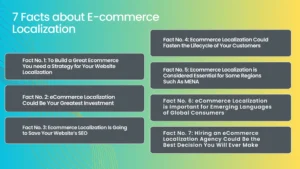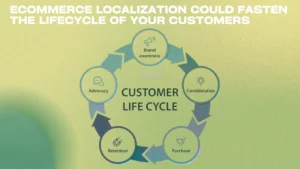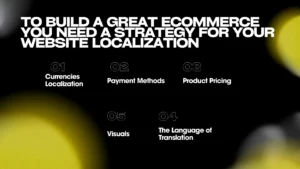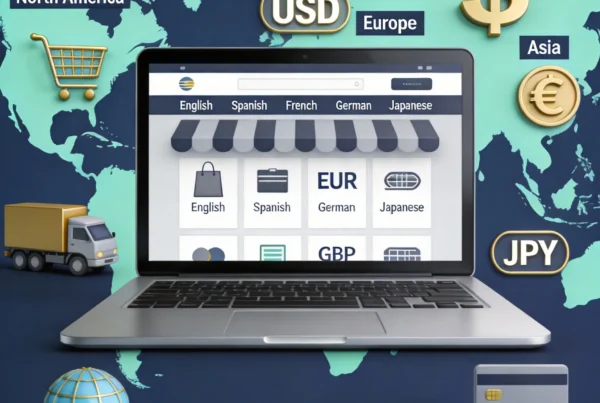7 Facts about E-commerce Localization, the Last 3 of Them Are Essential to Improve Your Global Reach
 Diving into the market of ecommerce demands a high proficiency in speaking the language of your target audience. Doing it without localizing your business can cost you a lot—not just money but also reputation.
Diving into the market of ecommerce demands a high proficiency in speaking the language of your target audience. Doing it without localizing your business can cost you a lot—not just money but also reputation.
Here are seven facts about ecommerce localization. The last three will bring you lots of potential customers.
Fact No. 1: To Build a Great Ecommerce You need a Strategy for Your Website Localization
When working on the localization of your online business, you must have a strategy to show you what exactly you need to work on and the objectives that need to be achieved.
- Currencies Localization: Provide the price in the customer’s currency.
- Payment Methods: Adapt to regional methods (Fawry in Egypt, BenefitPay in Bahrain, Mada in Saudi Arabia).
- Product Pricing: Consider global shipping and costs when setting prices.
- The Language of Translation: Customers prefer to purchase in their native language.
- Visuals: Localize images and visuals for cultural relevance.
Fact No. 2: eCommerce Localization Could Be Your Greatest Investment
Using the native language of your audience will help you reach a larger audience, reduce bounce rates, and increase conversions by building confidence and trust.
Fact No. 3: Ecommerce Localization Is Going to Save Your Website’s SEO
Multilingual SEO is key to ranking in search engines. Localized content ensures that your website matches local search terms and behaviors, boosting visibility and engagement.
Fact No. 4: Ecommerce Localization Could Fasten the Lifecycle of Your Customers
 Localization accelerates the customer journey: from awareness to consideration, purchase, retention, and finally advocacy.
Localization accelerates the customer journey: from awareness to consideration, purchase, retention, and finally advocacy.
It captures audiences sooner, converts them faster, and keeps them engaged longer.
Fact No. 5: Ecommerce Localization is Considered Essential for Some Regions Such As MENA
The MENA region is rapidly growing, especially in the Gulf area. Arabic eCommerce localization is vital since Arabic is the main language, written RTL, requiring specific technical handling.
 Fact No. 6: eCommerce Localization is Important for Emerging Languages of Global Consumers
Fact No. 6: eCommerce Localization is Important for Emerging Languages of Global Consumers
Languages like Russian, Hindi, Japanese, Arabic, and Vietnamese represent fast-growing ecommerce markets. Localizing to these languages opens new growth opportunities.
Fact No. 7: Hiring an eCommerce Localization Agency Could Be the Best Decision You Will Ever Make
Agencies bring expertise, tools, and scalability to handle ecommerce localization professionally, ensuring quality and efficiency.









